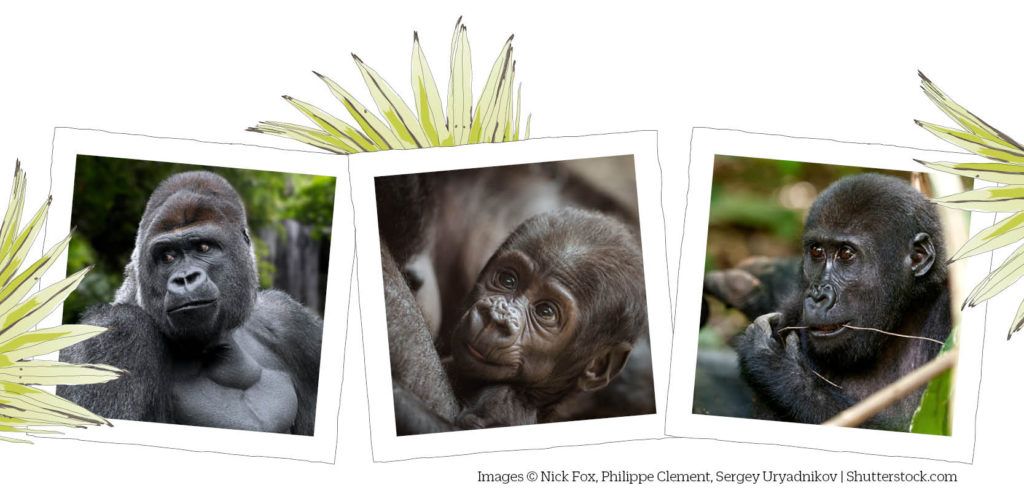Gorilla appeal
Make a donationSupport a Gorilla Guardian
Western lowland gorillas live in the dense rainforests of central and West Africa. Although widespread, they’ve declined by an estimated 60% in the past 25 years, mainly due to loss of habitat, poaching, and breakouts of infectious diseases.
One of their key habitats is the Campo Ma’an National Park in Cameroon, a rainforest with incredible biodiversity. The forests here have been protected one way or another since the 1930s. But they’re surrounded by logging concessions and rubber and oil plantations, which have huge camps attached to them. The increase in people has meant a rise in demand for illegal bushmeat. Gorillas and other wildlife living near the plantations are now at much greater risk of being killed for their meat.

Historically, only the indigenous Bagyeli tribe hunted wildlife in the Campo Ma’an, and did so in a traditional, sustainable and non-exploitative way. As their ancestral forest home, the Bagyeli use it for shelter, food and to trade products for income with neighbouring tribes. But as more and more forest is cut down for logging and plantations, their lifestyle and means of sustaining themselves is severely impacted.
Commercial hunters and people living in plantation camps are exploiting the Bagyeli people, taking advantage of their skills and need for additional income, paying them to hunt illegally and transport bushmeat. This increase in demand for bushmeat is putting the gorilla population at risk. The situation deteriorated even further during Covid, when tourism shut down and the region lost a vital stream of income. The Bagyeli have nowhere else to turn, forced into exploitative hunting, harming the very landscape they call home.
With more protection needed for gorillas, we’re funding a trial, run by African Wildlife Foundation (AWF). The team will recruit ten men from Bagyeli villages who are likely to be susceptible to exploitation by commercial interests, and train them to be Gorilla Guardians, giving them an alternative livelihood. If the trial works, it can be expanded into other areas.
There are several Bagyeli villages on the critical northern boundary of the park, so there’s potential for these communities to act as buffers between the forest and the plantation camps. The team will work with the guardians alongside the Cameroon government, using the Bagyelis’ expertise to protect gorillas and other wildlife and also, crucially, give the Bagyeli more say over how their native habitat is governed.
Would you be able to make a gift to train a Gorilla Guardian?
Thank you.
Header image credit Sergey Uryadnikov, Shutterstock

